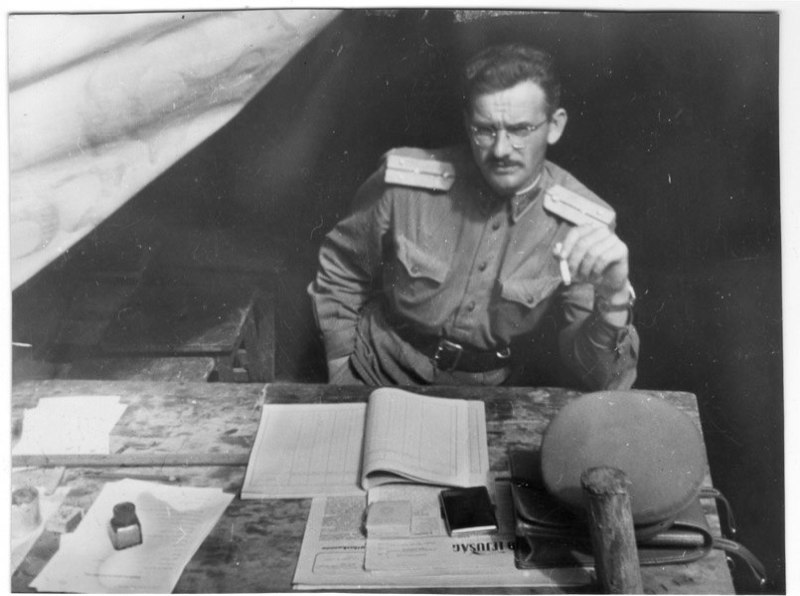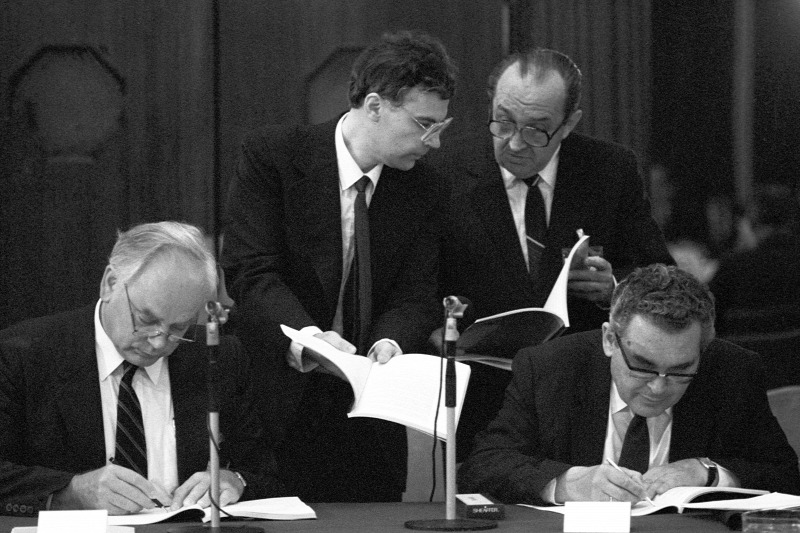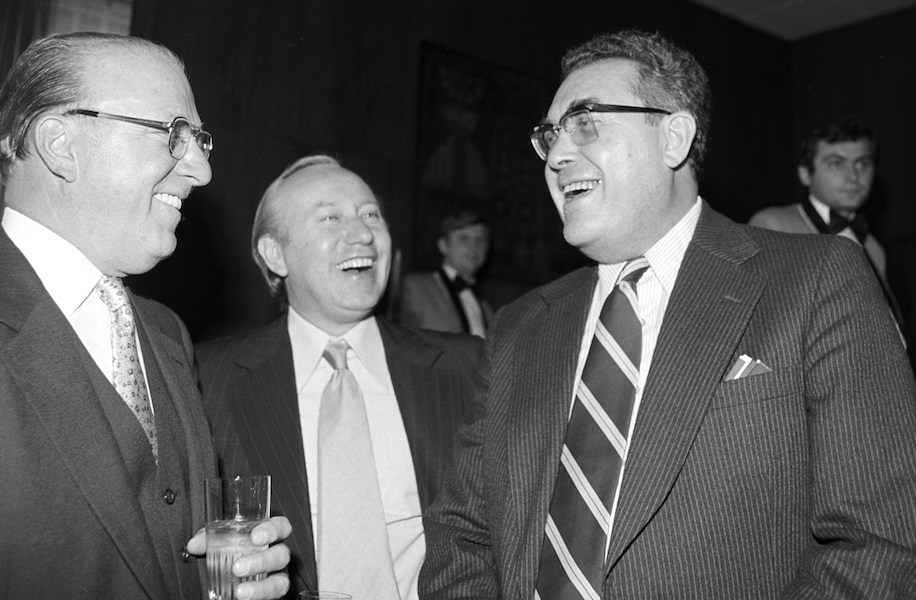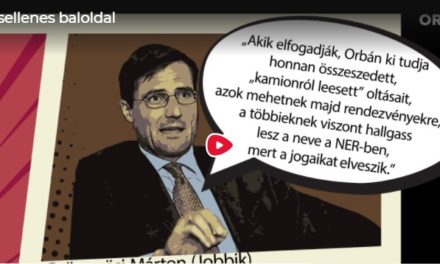The historian Zsuzsanna Borvendég's series was originally published on the PestiSrácok website, but there are certainly those who missed it. But those who haven't read all the parts should also read it again. Knowing the whole picture, can we understand how we got here?
"MNVK-2. Within the group leadership, "a grouping - called the lobby for the sake of clarity - prevailed. Its members were mainly reliable persons who came or were sent from the political line of the apparatus and the army, whose connections went far beyond the communist and pro-Soviet perception. Their purpose is the self-interested manipulation of their means, which are often - due to the nature of their activities - illegal," wrote István Práczki in his memoirs about the hard core helping the foreign mafia, who provided secret service cover for economic abuses as military intelligence officers.
A couple of paragraphs earlier, you could already read that the robbery of the country using foreign trade was connected to a fairly narrow circle. It was no different within MNVK-2. Foreign trade companies are supervised by Operative Service A/5. Colonel Pál Kapás for a long time . This small sub-department - employing six to eight people - consisted primarily of political officers, whose connection to the inner circles of the party was much more direct than those serving in the other departments of intelligence. Their most important tasks included tip research, that is, finding and ensnaring potential winners.
A hungry pig dreams of winning
The winner was the same person in military intelligence as the agent in state security - only their position was much better! They were never pressured to cooperate, but always undertook the tasks on a "patriotic" basis, for which there was fair compensation, and moreover, this role was not associated with social contempt. They were not regarded as informers, they were not publicly identified and virtually stoned like their peers who often signed under duress.
It is true that in principle they did not deal with countering internal reactions, i.e. they did not have to write reports about their acquaintances, but they received privileges that were only the privileges of the operators of the party state. Professionally trained people who speak languages were organized by the military intelligence, that is, the network of the winners was full of talented and professional foreign traders, as well as journalists.
The close-party mafia within MNVK-2 and their selected winners were the ones who started building the western offshore company network. They created Eurocom, which functioned as a front for military intelligence, and with the help of which foreign expansion began. Their first joint venture was the double-entry bookkeeping Intereurop, with headquarters in Vienna and Vaduz. István Dévai , deputy general manager of Metalimpex, was one of the key figures in
Dévai became a member of the inner circle in the second half of the 1950s, when he served at the commercial office in Frankfurt of János Sebestyén . After returning home, he returned to his original workplace, Metalimpex, that is, he did not follow Sebestyén to the National Technical Development Committee, but the close "working relationship" between them did not cease. Dévai made a significant volume of currency extraction for military intelligence, while keeping in touch with all the key foreign intelligence figures and trying to favor the large Western corporations at the other end of the corruption web.
István Práczki was soon removed
The professional handling of the founding of Eurocom was entrusted to István Práczki, who expertly brought the company under the roof, but since he did not belong to the "lobby group" within the military intelligence, he was quickly removed from the company's vicinity.
Not so Dévait, who helped the economic maneuvers of the foreign interest group from the head of Metalimpex: he cheated the strict foreign trade rules through Eurocom and its subsidiaries (Intereurop). Intereurop Wien was a Viennese office operated jointly with a Yugoslav company, which served to conceal the identity of both Metalimpex and its partner. The Yugoslav partner, a merchant named Mile Jovanovits,

István Práczki
Domestic financial control was circumvented
The license application submitted to the Ministry of Foreign Trade justified the necessity of establishing Intereurop by saying that trade guidelines limited the amount of exports to different countries, even though the receiving market would often have been larger, so the exporter was forced to involve an intermediary company in the deal. Based on similar considerations, Jovanovits was also interested in founding the company, since he could not conduct his own business towards Yugoslavia, so "both Fercom and our company need to remain hidden in some cases. It is for this purpose that we include a suitable Austrian company, Intereurop Export GmbH, in the association".
From the surviving documents, it is difficult to untangle the threads of who and how many owners there actually were in Intereurop, how they shared the income, but it is clear that the main focus after the company was founded was re-export, and that everything was done by the domestic financial to completely evade control.
Salusinszky appears again
Several figures who have already been read about in this series took part in the founding of Intereurop. Such was the case, for example, of István Salusinszky , the president of the Magyar Külkereskedelmi Bank, who did a lot to ensure that foreign trade companies were granted the right to establish companies in the Western world.
Salusinszky himself had previously won, he led the trade office in Rome as a man of military intelligence, and he remained a member of the interest group even after he returned home. When, in 1974, the authorities began to investigate the economic abuses committed under the cover of Metalimpex, Salusinszky also became concerned:
"Comrade Salusinszky, the CEO of Külkereskedelmi Bank, fears that, following Dévai's arrest, the BM will investigate the background of Metalimpex's joint venture in Vienna and registered in Vaduz. According to the news source, Salusinszky remarked that then there would be big trouble.
According to the news source, this joint venture is a non-existent company because it is not registered with the Financial Institutions Center. As a result, it is not subject to domestic financial control, it does not pay profits, its financial operations cannot be traced, as much of the money received is recorded as they want, and Hungarian citizens working in Vienna as employees of the company cannot benefit from the legal protection of the Hungarian People's Republic.
The financial burden and disadvantage for the possibly unsuccessful financial transactions of the company should not be covered by the state, but by Metalimpex, obviously through false financial accounting or other falsification," we can read in the agent's report collected during the investigation.
The key figure: János Fekete
During the investigation against Metalimpex, the state security obtained more and more information about the financial machinations; they realized that the MNVK-2. supplements its budget with illegal sources, which of course end up much more in private pockets than covert operations. They were visibly irritated by the illegal acquisition of money and at the same time envied the practices of the competing organization: they tried to find out as many details as possible about MNVK-2. on placing its operation on a "business basis". They also asked for Devai's reports, which he gave to the intelligence as a winner. These reveal that, in addition to Salusinszky János Fekete , the deputy president of the Magyar Nemzeti Bank (MNB), also supported keeping the Viennese company's funds out of the country, that is, he gave permission for the part of Intereurop's profits not to be remitted to Metalimpex.

Willi Wapenhans (left), Deputy President of the World Bank, and János Fekete (right), President of the MNB, sign the agreement on borrowing 300 million US dollars (photo source: MTI/Attila Manek)
The role of the mysterious Jovanovits
Shortly after the creation of Intereurop, Fercom and Metalimpex created another joint venture called Metimexco. Although the founding documents of the company are not yet available to me, it is clear that Metimexco was also born with the help of Jovanovits, who was interested in Intereurop. Clear information for the basis of which the MNVK-2 was chosen. Jovanovitsot's business partner, unfortunately, it is not clear from the materials.
From the previous data collection of the BM, we know that in the years before the company was founded, he had a close relationship with Ferenc Arató , the former deputy general manager of Külkereskedelmi Bank, who was under surveillance on suspicion of cooperation with British and Israeli bodies, but committed suicide a few years earlier. (Incidentally, Ferenc Arató was one of the financiers who started the re-export activity in Hungary, the re-export that then opened up the opportunity to start the money pump.)
According to some reports, Jovanovits had a final criminal conviction in Yugoslavia, which is why he had to remain invisible during business deals, but according to other information, he was a member of the Yugoslav state security services and spread the legend of the criminal proceedings about himself just for the sake of legalization.

Medimpex exhibition in Moscow (image source: Orszá-Világ)
The role of the subsidiary bank in Vienna
The accounts of Metimexco and the two Intereurop were maintained at two Viennese banks, but transactions were reported only at one bank. Although Metimexco had a current account with the MNB's subsidiary bank in Vienna, the Central Wechsel- und Creditbank (CW Bank), there was no traffic on it.
CW Bank was tasked with financing the western transactions of state-owned foreign trade companies during the party state, but it continued to operate after the democratic reorganization, leaving many questions to be answered. By 1999, it had accumulated a loss of at least seventy billion forints to the budget of the Republic of Hungary, a significant part of which arose after the system change, when the bank issued a huge loan portfolio to entrepreneurs mostly from the former Eastern Bloc. (Actually, these were not "real" loans. These funds were given to some "entrepreneurs" without regular loan agreements, that is, when the funds were placed, it was already obvious that there would be no repayment.)
Most of the businessmen with dubious reputations were connected to the secret services of the Soviet Union or one of the satellite states, and there were even reports that the assets of the Stasi were saved through CW Bank after the coup. The Hungarian branch bank in Vienna therefore presumably operated as a money launderer, but Metimexco did not manage its financial affairs with the help of CW Bank. The involvement of the MNB in the transactions was clearly avoided, even though the central bank tried to put pressure on the management.
On June 23, 1976, the manager of CW Bank called the then director of Metimexco, József Heiszig , and asked him to work for the branch bank. , in his written report to the Metalimpex management, he stated: to transfer part of it abroad."
In other words, they did not want to make the information about the amount and movement of money visible to any institution with ties to Hungary, even if CW Bank's management also supported various offshore solutions.
Source: PestiSrácok
Author: historian Zsuzsanna Borvendég
(On the cover photo: C. Bernard Jacobs (b), president of the American financial institution National City Bank of Minneapolis, Zoltán Juhar, state secretary of the Ministry of Internal Trade, and János Fekete (j), vice president of the Magyar Nemzeti Bank, talk at the reception. Photo: MTI)













